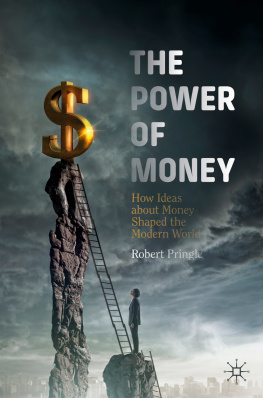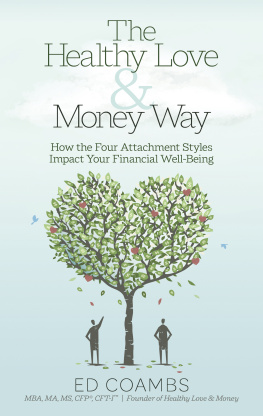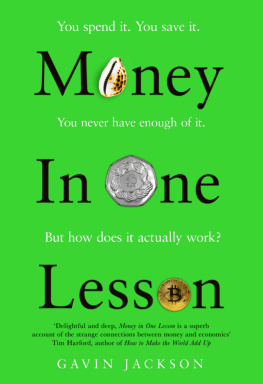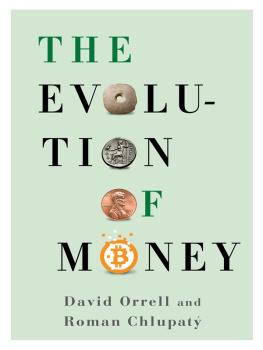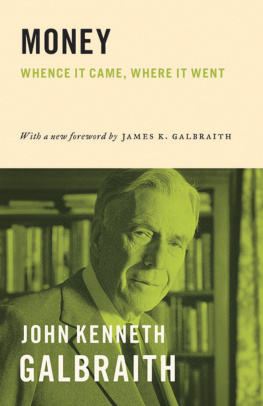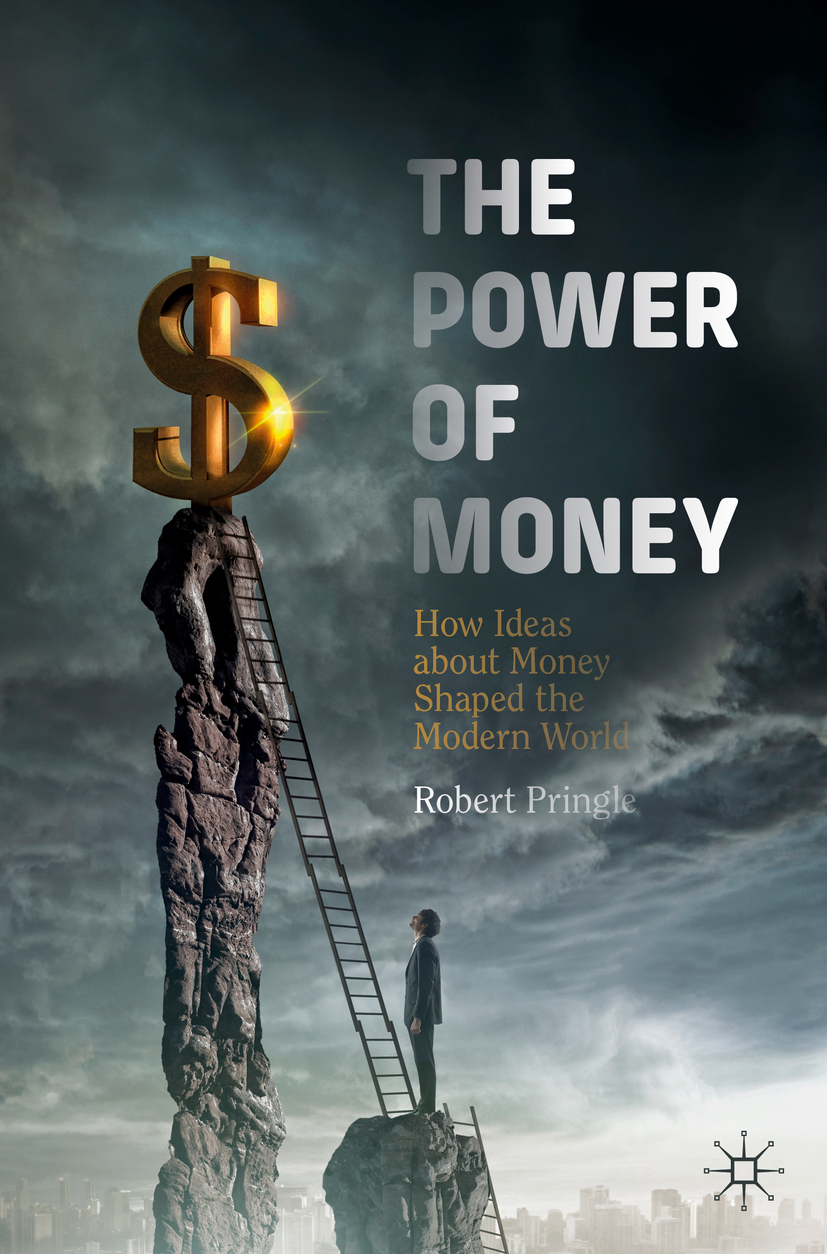Robert Pringle - The Power of Money: How Ideas about Money Shaped the Modern World
Here you can read online Robert Pringle - The Power of Money: How Ideas about Money Shaped the Modern World full text of the book (entire story) in english for free. Download pdf and epub, get meaning, cover and reviews about this ebook. year: 2019, publisher: Palgrave Macmillan, genre: Politics. Description of the work, (preface) as well as reviews are available. Best literature library LitArk.com created for fans of good reading and offers a wide selection of genres:
Romance novel
Science fiction
Adventure
Detective
Science
History
Home and family
Prose
Art
Politics
Computer
Non-fiction
Religion
Business
Children
Humor
Choose a favorite category and find really read worthwhile books. Enjoy immersion in the world of imagination, feel the emotions of the characters or learn something new for yourself, make an fascinating discovery.
- Book:The Power of Money: How Ideas about Money Shaped the Modern World
- Author:
- Publisher:Palgrave Macmillan
- Genre:
- Year:2019
- Rating:5 / 5
- Favourites:Add to favourites
- Your mark:
The Power of Money: How Ideas about Money Shaped the Modern World: summary, description and annotation
We offer to read an annotation, description, summary or preface (depends on what the author of the book "The Power of Money: How Ideas about Money Shaped the Modern World" wrote himself). If you haven't found the necessary information about the book — write in the comments, we will try to find it.
Innovation in money is just as important as innovation in any other sphere of activity; money is always a work in progress. In fact, history shows societies have tried out a wide diversity of monetary arrangements. Ideas about money have played key roles at crucial turning points in world history and during national histories. Recently, a new global money space has been created, a joint venture between the public and private sector.
This book explores the new money society that has grown up to inhabit this new space. The book has several aims: Firstly, the book shows how beliefs about money, as well as attitudes and values towards it, have varied between societies and over time, and specifically how they have changed over the modern era. Secondly, the book shows the powerful effects that changing ideas have had on events, including wars and revolutions, recessions, booms and financial crises. Thirdly, the book recounts the creation of a global money space, dated to the last quarter of the 20th century, and explores its features. Fourthly, the book describes some characteristics of the new money society that inhabits the global money space. Fifthly, the book shows how each society, and indeed successive generations of the same society, has made its own unique arrangements to govern money i.e. how it comes to terms with the power of money.
The author argues that we need to develop a new arrangement now and suggests that we have much to learn from recent creative work in a number of fields ranging from the sociology of money to contemporary art. This approach sheds new light on a number of controversial issues, including the rise of crony capitalism, growing social divisions, currency wars, and asset price bubbles.
Robert Pringle: author's other books
Who wrote The Power of Money: How Ideas about Money Shaped the Modern World? Find out the surname, the name of the author of the book and a list of all author's works by series.

